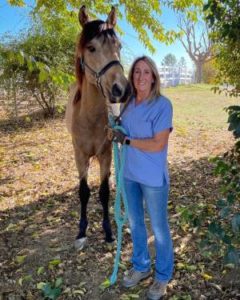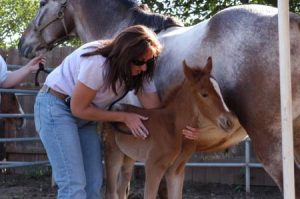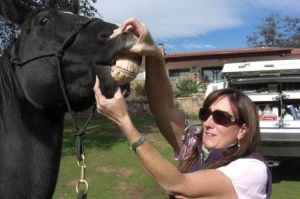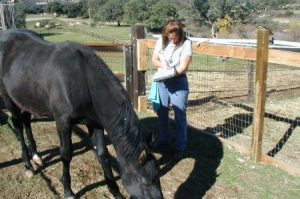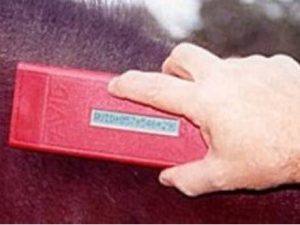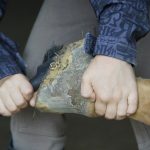
LEGAL LESSONS EVERY HORSE …
A contract is simply an exchange of promises. For example, a college student agrees to exercise your horse every Saturday if you allow her to ride him in three shows over the summer. Or you help out around the barn in exchange or a lower boarding fee. Maybe you and a friend agree to split the costs of hauling your horses to Florida next winter.
All of these situations are contracts: Each person makes a promise and gets something in exchange. None of these were in writing-and that’s OK. An agreement does not have to be in writin to be considered a contract. An oral agreement is as binding as words on paper If one person backs out of the agreement, even if tho; agreement was not in writing, the other person has legal recourse. He can sue, either for performance of the agreement or monetarycompensation.
- HORSE OWNERSHIP COMES WITH STRICT LIABILITY
Caring for horses is both a joy and a hassle. Horses are needy creatures. They must be fed, sheltered and kept up-to-date on vaccinations. Most of us, re happy to provide this care because these incredible animals ring us such happiness. But the reality is that the law also requires it, and violations can result in fines, restrictions on horse ownership and even jail time. This is not about animal abuse, although that’s certainly against the law in. most states. What we are talking about here are health and safety laws regarding livestock. Health and safety laws are in place to protect the animal population in general, rather than the individual horse. Under most state laws horses are considered livestock, like sheep and cattle, rather than pets, like cats and dogs. Unlike laws that require intent or negligence to be punishable, these laws are strict liability meaning, if you own the horse, you own the responsibility. No excuses. - YOU BUY A HORSE “AS IS”
In general, horses sold are understood to be “as is.” What if the buyer and seller both believe the horse is sound, and then discover the horse is chronically lame after the sale is complete? Courts have held that lameness does not void the transaction, unless the agreement expressly guaranteed the horse was sound.
This puts the buyer at a disadvantage, especially when dealing with a professional horse trader. Nonetheless, even in the “buyer beware” world of « horse-trading a nonprofessional can protect herself.
A prepurchase exam is the first line of defense. An as-is contract is a lot less scary when a horse has been thoroughly gone over by Dr. Garfinkel. Second, keep in mind that contracts
are negotiable. If, for example, cribbing is a deal-breaker, put it in the contract. Such terms must be specific and have a reasonable end date-no court would uphold returning a horse years later; a few months is probably the most you could ask for. - SOMETIMES IT REALLY IS SOMEONE’S FAULT
The rule that governs rider injury cases holds that horses are dangerous and riders accept the risks and therefore cannot sue for injuries-no matte how bad those injuries are. Case closed, Right? Wrong! How these cases are handled varies depending on the state, but most states’ “equine activity statutes” apply only to the “inherent dangers” of horses and riding, not dangers caused by human error or negligence.
Inherent dangers include:- The unpredictable nature of the horse.
- Rider negligence
- Surface/ground conditions
- Putting a rider on an unsuitable horse
- Failing to warn the rider of unknown dangers.
- BOTTOM LINE: Negligence cannot be waived.
- WE ARE ALL FRIENDS HERE UNTIL SOMEONE GETS HURT
Even if a horse owner is not a professional horseperson-meaning he doesn’t have special duties because of the nature of his job-he still might be liable for injuries or damages caused by his horse. What if you invite a friend to ride your horse, and your friend gets hurt? Maybe your friend understands that accidents happen and has no intention of suing. If so, good for you-but sadly, this often isn’t the case. Luckily for you, however, the equine activity statutes protect everyone, not just horse professionals. This means that unless you are negligent, you are not liable for your friend’s injuries. The standard of negligence is different for professionals vs. nonprofessionals. So what does negligence entail for the Use your common sense here. If you invite. a friend to ride your horse, make sure she is appropriately attired (long pants, boots, helmet). Show her the ropes;
don’t assume she knows anything. Don’t put anyone on your horse if you don’t think it’s safe. And above all: A person does not ride at his own risk unless he knows he rides at his own risk. Even if you are not a professional, you must still tell your guest that horses are inherently unpredictable and the guest rides at his own risk. It might be uncomfortable to have this conversation with a friend, but it is absolutely necessary.
~ BOTTOM LINE: Even nonprofessionals can be sued.

